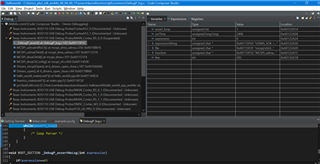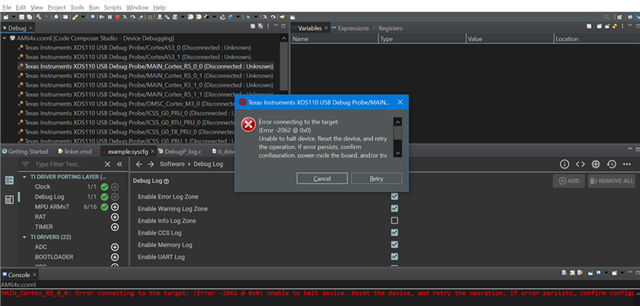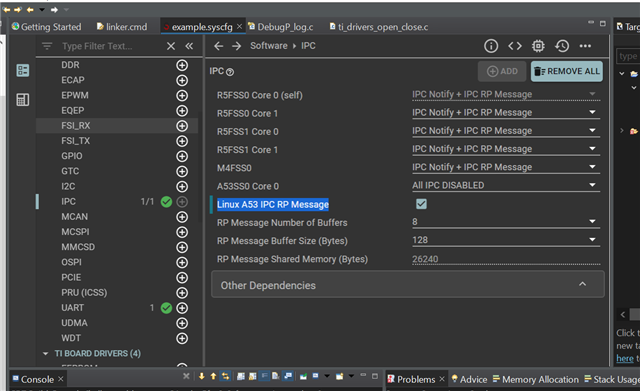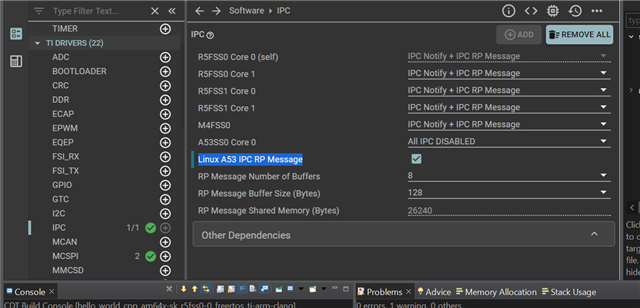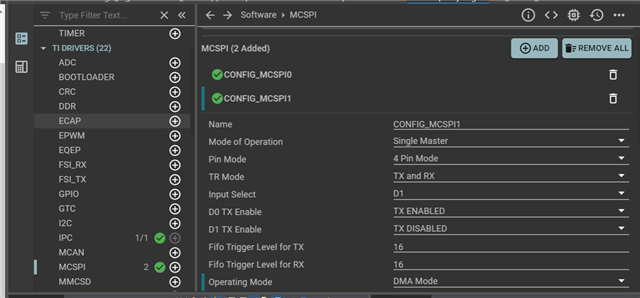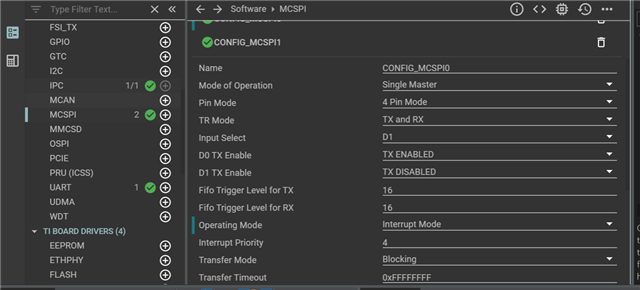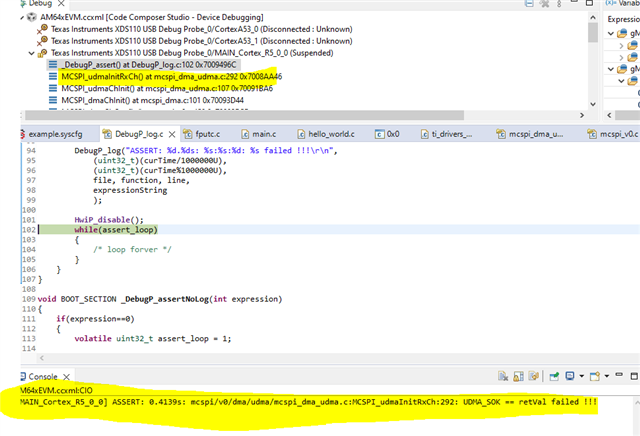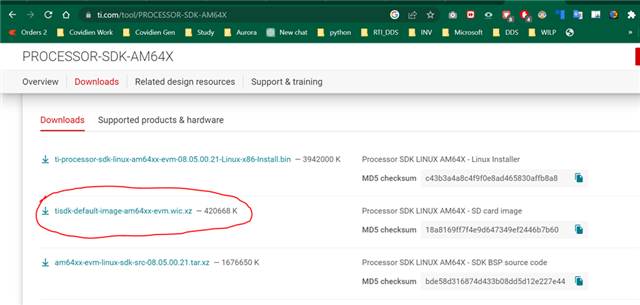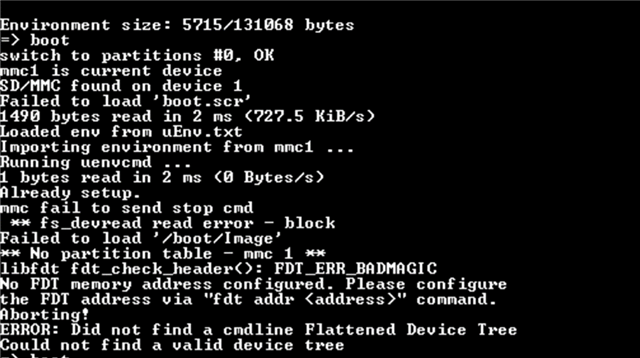Other Parts Discussed in Thread: SYSCONFIG
MCSPI project: It is freeRTOS R5 application will communicate to other sensor through SPI interface.
IPC RP Message Linux Echo : It is example application which communicates to A53 (mcu_plus_sdk_am64x_08_04_00_17\examples\drivers\ipc\ipc_rpmsg_echo_linux)
Customer have integrated the IPC RP Message Linux Echo into the SPI project. Customer has the UART1 for IPC communication and for the MCSPI project have 2 SPI channels which is using the DMA mode operation(with UDMA PKTDMA_0). After integrating the MCSPI project and echo Linux, No (IPC RPMSG ECHO)messages were showing on the USART1 console.
After changed the mode of operation from DMA to Interrupt for the SPI channels, they able to get the logs in UART1 console.
Do they need to change any pin configuration or any settings in sys config for DMA to work for MCSPI?
MCSPI settings with DMA mode(not working):
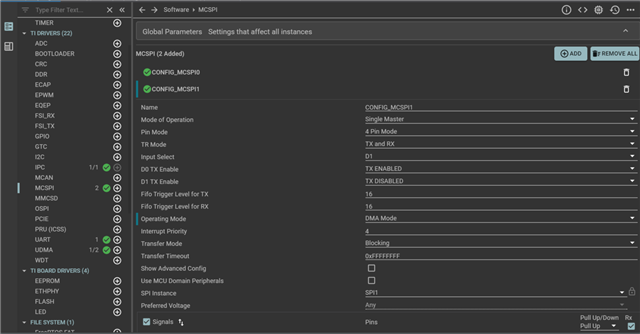
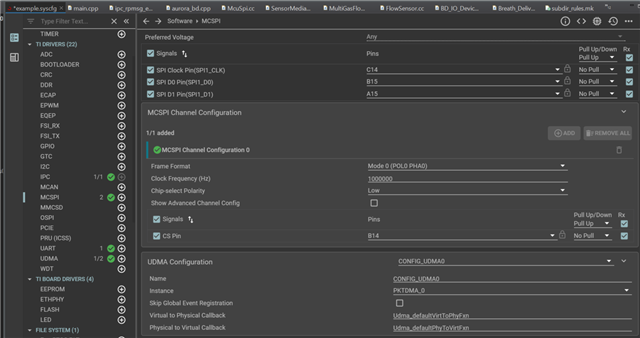
MCSPI settings with Interrupt mode(working):
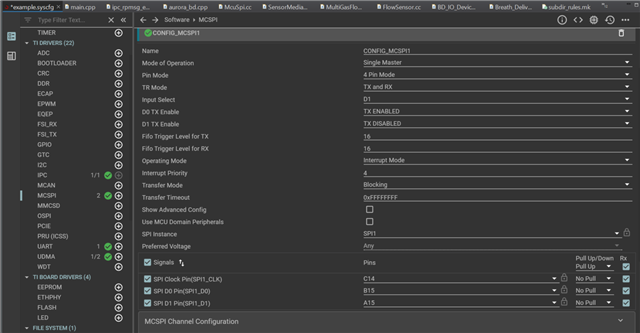
IPC UART1 settings:
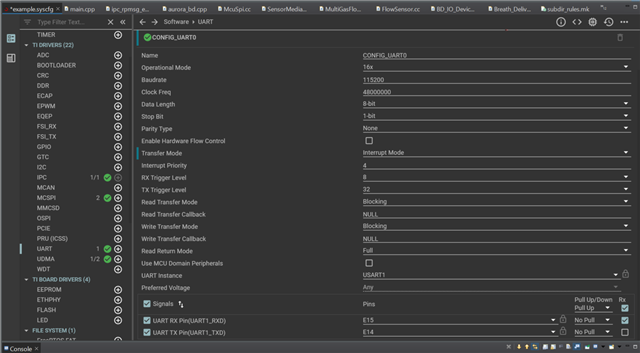
Console log:










